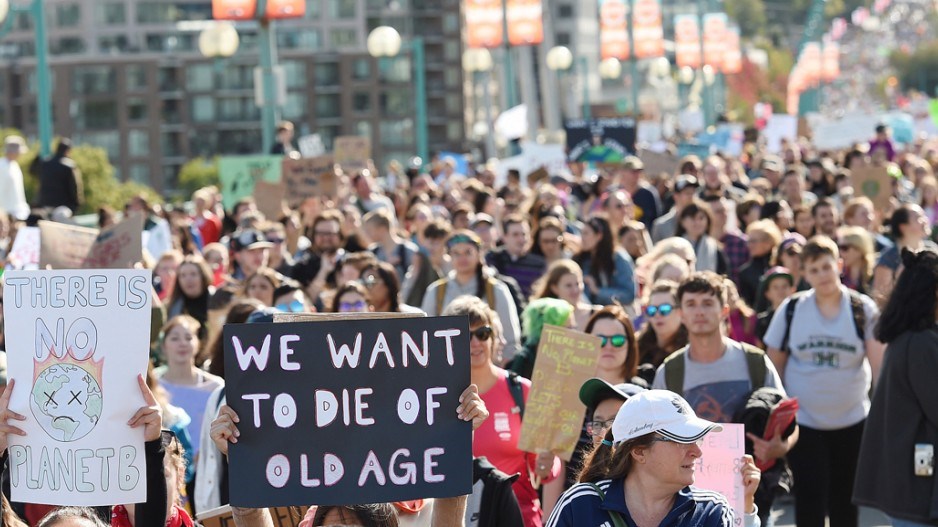The federal government will defend its motion to strike a climate change case brought by fifteen young Canadians in federal court in Vancouver this week.
The case claims that Ottawa has violated the plaintiffs’ constitutional rights by knowingly allowing, causing and contributing to the “dangerous destabilization of the climate.”
Specifically, it argues that the government’s actions deprive all Canadian children and youth – as well as future generations of children and youth – of their rights to life, liberty and security.
The case also claims that because of the vulnerabilities associated with the plaintiffs’ ages – which ranged from 10 to 19 at the time the claim was filed in October 2019 – the federal government’s actions also infringe upon the plaintiffs’ rights to equal protection and equal benefit of the law without discrimination.
“Essentially we’ll be arguing that the Canadian government has caused or contributed to climate change, and we’re asking the court to declare as a result that it has violated our clients’ constitutional rights to be safe and without risk of psychological or physical harm,” explained Joseph Arvay, a partner with Arvay Finlay LLP and a solicitor for the plaintiffs.
“We’ll be asking the court to make that declaration that Canada has acted unconstitutionally, and order Canada to develop a climate change plan that will remedy its past breaches and prevent future breaches.”
Earlier this year, the federal government requested that the claim be dismissed. It argued that the plaintiffs’ allegations do not amount to valid Charter claims.
“The plaintiffs’ claims do not challenge any specific law or government action with respect to addressing climate change. Rather, the claims are grounded in broad allegations that the federal government has generally failed to take sufficient action to address climate change,” reads the federal government’s statement of defence.
The statement also claims that the relief sought by the plaintiffs – that a court order Ottawa to develop and implement an enforceable climate recovery plan – are “fundamentally vague and unmanageable.”
“There is no legal standard for assessing whether Canada’s response to climate change is constitutionally adequate and/or consistent with the achievement of a ‘stable climate system,’” the statement argues.
“Given the nature of global climate change, the relief sought would require the court to supervise and direct the government’s development, implementation and compliance with a climate change plan for several decades if not longer.”
BIV has reached out to Canada's Department of Justice for comment.
Arvay told BIV that while this case is the first of its kind in Canada, similar cases have successfully been argued in the United States, Australia, Ireland and the Netherlands.
“The Supreme Court of the Netherlands ordered the government of the Netherlands to do something similar to what we will be asking the Canadian court to do,” he said.
Last year, the Supreme Court upheld a lower court decision that ordered the government of the Netherlands to keep greenhouse gas emissions to 25% below 1990 levels by 2020.
The U.S. Climate Change Litigation database currently counts 1,665 cases of climate change litigation worldwide.
The majority of those cases (1,270) are in the United States.
The Canadian case, which includes four plaintiffs from B.C., is scheduled to be heard in court on Wednesday and Thursday.
If Ottawa is successful, it could prevent the case from going to trial. If not – and COVID court challenges aside – Arvay thinks the case could be back in court in about a year.
@hayleywoodin
Read more from Business In Vancouver

-adam-taylor,-mlss.jpg;w=120;h=80;mode=crop)


